July 15-21
A review of the headline grabbing events of this past week.

Newsroom, 22.07.2017, 12:20
Saber Guardian 2017 draws to a close
Saber Guardian 2017, one of the largest and most complex NATO exercises ever hosted by Romania has come to an end, Romanian Defense Ministry announced on Friday. The military exercise contributed to the consolidation of defence and deterrence on the eastern flank of the North-Atlantic Alliance and the development of interoperability between the participating countries. Around 20 NATO member and partner states took part in the military exercise with a significant number of troops and technical resources. Previously, the Romanian Foreign Ministry said that the exercise also represents a confirmation of the solidity of the Trans-Atlantic relationship and of the bilateral strategic partnership between Romania and the United States, which was signed 20 years ago. Taking part in one of the stages of the exercise, the Czech General Petr Pavel, the Chairman of the NATO Military Committee, said that Romania is a consistent and trustworthy partner. He hailed Romanias contribution to NATOs operations, saying this country is one of top ten contributors to the Afghanistan mission.
President Iohannis favors autonomy, regionalization and descentralization, but not on ethnic criteria
Romania needs economic growth and modern administration, therefore it needs decentralisation, regionalization and local autonomy, but not based on ethnic criteria, said President Klaus Iohannis who visited the counties of Covasna and Harghita with a majority ethnic Hungarian population.
Klaus Iohannis explained: “I believe that decentralization is a must, because local officials know best what their communities need and they must have the necessary tools in place to act for the benefit of those whom they represent. Regionalization can also be taken into consideration, but only if its aim is to render regional government more effective, which means that it serves the citizens and helps create new jobs as a result of economic growth. Local and regional autonomy can help, but autonomy based on ethnic criteria is not something that should happen, because this would hinder development.”
The President said he is worried about the future of the young people in these counties, who do not speak Romanian and who thus have fewer opportunities on the labour market. President Klaus Iohannis said, that, too often realities in the two counties are interpreted so as to divide, highlight differences, not similarities, and promote hostility, intolerance and rejection towards people from different ethnic groups, be they majority or minority. These are sure ways to block not only the development of these communities, but also the country as a whole. According to the head of state, the counties of Covasna and Harghita benefit from a particularly rich tourist potential, on which local authorities should capitalize more. The Hungarian community in Romania numbers around 1.5 million people and has been represented in Romania’s parliament since 1990 by the Democratic Union of Ethnic Hungarians in Romania (UDMR), that has been part of several coalition governments.
Vaccination campaign at national level
Romania is facing the biggest measles epidemics in recent years, with 8 thousand cases of infection reported and 31 deaths since its outbreak last September. Although vaccination remains the only protection against the disease, the immunization rate has dropped significantly in recent years.
The present epidemic’s main cause remains the parents’ refusal to immunize their children. They fear the possible side effects vaccines could have on the little ones, fear that was fuelled by the erroneous information available on line and in other sources. The first measure meant to keep the epidemic at bay is a draft law to be submitted shortly to the government and subsequently sent for Parliament approval.
Under the law, parents may choose not to vaccinate their children but are to assume responsibility for the consequences. The law also provides for sanctions against those involved in supplying and distributing the vaccines. n the spirit of its public mission, Radio Romania has joined the efforts of providing information on the benefits of vaccination and started its own campaign in this respect. Radio Romania has dedicated some of its slots to news, reports and special programmes aimed at raising people’s awareness of the dangers children are exposed to if they don’t get the vaccine; 180,000 children have not been immunized for measles.
The National Agency for Fiscal Administration has a new management
Romania’s National Agency for Fiscal Administration has a new management team. Mirela Calugareanu, who has been an executive director at the General Direction Collection of Public Finance Bucharest is the Agency’s new chief. The appointment takes place after PM Mihai Tudose dismissed the institution’s former chief, because of the poor collection level of taxes. Mirela Calugareanu is not a member of a political party and has been working in the field of tax collection and public administration for 26 years.
Start Up Nation programme, a success
The Start-up Nation Programme, under which entrepreneurs can receive 200,000 lei from the Romanian state to start a business is a success. This year’s budget for this programme is 1.7 billion lei. Over 19,000 business plans have been already submitted, but only half of them will be selected. Minister for the business environment Ilan Laufer said most applicants are aged below 35. He also said that the financing accords for the approved business plans will be signed in two weeks at the most and a new session of the programme will be scheduled for next year.




























